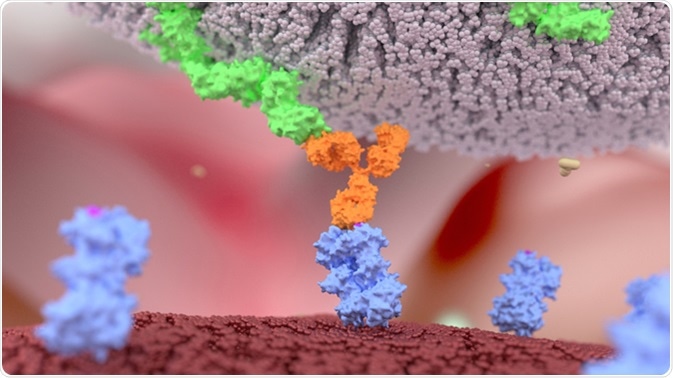For All The Latest Medical News, Health News, Research News, COVID-19 News, Dengue News, Glaucoma News, Diabetes News, Herb News, Phytochemical News, Cardiology News, Epigenetic News, Cancer News, Doctor News, Hospital News
Natural Killer (NK) cells are the leading maternal immune cells which act as a natural defense system and help in fighting infections. During pregnancy, NK cells aid in supplying blood to the fetus, essential for its growth and development. It also protects the fetus against foreign bodies and infections.
There are two types of NK cells - uterine NK cells and NK cells that are circulating in the peripheral blood stream. Uterine NK cells protect the embryo against serious infections, whereas peripheral NK cells are important in protecting the body against viral infections and cancer cells. NK cells play a pivotal role in the establishment and maintenance of pregnancy.

NK cells are recognized primarily by the expression of two surface markers - CD16 and CD56NK cells. Uterine NK cells are normally present in the endometrium (inner epithelial layer of the uterus) and thrive in the presence of high progesterone levels. Pregnancy is marked with increased progesterone levels, hence the number of NK cells spike during pregnancy.
NK cells are basically the sub-types of white blood cells which are vital in recognizing foreign bodies and combating infections during pregnancy. However, an excess of NK cells has shown an equally reversing effect and can result in the below situations:
For an embryo to be successfully implanted in the luminal epithelium of the endometrium, trophoblast cells incursion is essential. Presence of uterine NK cells in close proximity to extravillous trophoblast (EVT) cells has shown a vital role during the trophoblast incursion process.
Cytotoxicity, production of cytokines and angiogenic growth factors
Uterine NK cells have cytotoxic effects, particularly against K562 cells. Uterine NK cells also result in the production of various cytokines and growth factors like IL-1, IL-2, IL-4, IL-6, IL-8, IL-10, tumor necrosis factor alpha, granulocyte-macrophage colony stimulating factor, TGF-1, leukemia inhibitory factor, and interferon gamma. Production of Type 2 cytokines is vital in a successful pregnancy, whereas growth factors produced by NK cells play a vital role in the angiogenic (new blood cells) activity. Uterine NK cells result in the production of angiogenic growth factors such as angiogenin, angiopoietin (Ang)-1, Ang-2, vascular endothelial growth factor (VEGF)-A, VEGF-C, placental growth factor, keratinocyte growth factor, fibroblast growth factor, and platelet-derived growth factor-BB (PDGF-BB) during early phases of pregnancy.
Formation of spiral arteries
Spiral arteries are the prime blood vessels both in pregnant decidua (uterine lining in pregnancy) and non- pregnant endometrium. Uterine NK cells are closely aggregated in close proximity to the spiral arteries during an early phase of the pregnancy, which aid in mediating the vascular changes at the time of pregnancy.
An overproduction of NK cells is one of the prime causes of pregnancy failure. NK cells activity is propelled by high-stress levels or by an auto-immune disease. In some situations, such as inflammation in the pelvic cavity, endometriosis, polycystic ovarian syndrome or inflammation in the fallopian tubes, the immune system sends signals to the circulating NK cells in the bloodstream which mistakenly starts attacking the embryo. When peripheral NK cells enter the site of inflammation uterine NK cells become incapable of protecting the embryo against the peripheral NK cells action. This leads to the damage to the embryo.
The diagnosis of increased levels of NK activity is done through a biopsy which is performed between day 24 and day 28 of the menstrual cycle in females having inflammation in the pelvic cavity or potential infertility conditions like endometriosis.
NK cells production increases due to an overactive immune system or any inflammation. Hence, immune disorders like thyroid functioning should also be evaluated. A complete evaluation of TSH, T3, and T4 levels are required to assess the functioning of the thyroid gland.
Steroids are the treatment choice for controlling high uterine NK cells levels before and after conception.